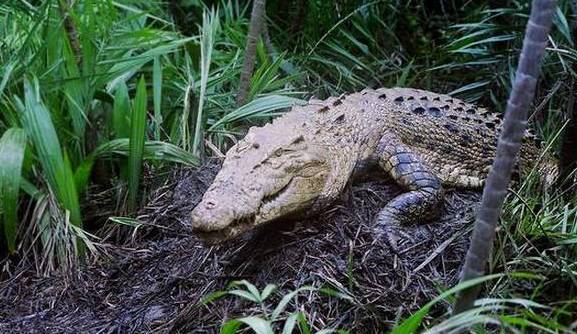Kendrapara: The forest department has engaged the ground staff to keep a close watch on baby crocodiles in Bhitarkanika National Park so that they do not fall prey to predators, a senior forest official has said.
They were asked to keep the vigil on the hatchlings of estuarine crocodiles as their mortality rate is very high, Divisional Forest Officer, Rajnagar Mangrove (wildlife), Forest Division, Prasanna Kumar Acharya, said.
Hardly one out of every hundred crocodiles born grows into an adult and the babies are usually devoured in the wild by predators, the DFO said.
This year, forest personnel have spotted a record number of 101 nesting sites of the estuarine crocodiles in the national park, Acharya said.
“The increase in the number of nests is indicative of the success of the conservation measures undertaken by the state forest department,” the DFO said.
The emergence of hatchlings has commenced since the last three days and would continue for a fortnight, Acharya said.
After coming out of the egg shells, the baby crocodiles were seen loitering aimlessly before hopping into the water bodies at the national park, he said.
This natural phenomenon marks the culmination of the annual breeding and nesting season of the endangered salt water crocodiles.
The DFO said female crocodiles lay 50 to 60 eggs and the hatchlings usually emerge from the nests after 70 to 80 days of the incubation period.
The sanctuary was out of bounds for tourists from May 31 to July 31 in view of the breeding season of these reptiles. The ban on tourists was necessary as human interference can turn the crocodiles violent.
Estuarine crocodiles are also found in West Bengal’s Sundarbans, having the countrys largest mangrove cover.
Mangrove wetlands in Andaman Islands are also home to these species, but it cannot match the density and population of salt water crocodiles in the wild habitats of Bhitarkanika.







































